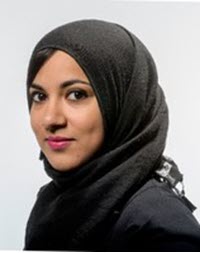Become a Patreon!
Abstract
Excerpted From: Mona Alsaidi, Legally White, Effectively Othered: Recognizing and Investing in Arab American Communities, 94 Temple Law Review 99 (Fall, 2021) (263 Footnotes) (Full Document)
 During the first presidential debate in September 2020, President Biden effortlessly spoke the Arabic phrase inshallah, meaning God willing. President Biden's use of the phrase did not go unnoticed--some viewed it as a nod to Arabs and Muslims, and others criticized it as pandering or inappropriate. About a month after this debate, then-candidate Biden was declared the winner of the 2020 presidential vote in Michigan, a key swing state that former President Trump won in 2016. Wayne County, a Michigan county with a high percentage of Arab residents, was vital in turning Michigan blue for then-candidate Biden. Though difficult to say definitively the extent to which the Arab vote influenced the results in Michigan, it was instrumental to President Biden's victory. Before and since his election to office, Arab Americans have emphasized their hope that as president, Biden would support Arabs just as they had supported him.
During the first presidential debate in September 2020, President Biden effortlessly spoke the Arabic phrase inshallah, meaning God willing. President Biden's use of the phrase did not go unnoticed--some viewed it as a nod to Arabs and Muslims, and others criticized it as pandering or inappropriate. About a month after this debate, then-candidate Biden was declared the winner of the 2020 presidential vote in Michigan, a key swing state that former President Trump won in 2016. Wayne County, a Michigan county with a high percentage of Arab residents, was vital in turning Michigan blue for then-candidate Biden. Though difficult to say definitively the extent to which the Arab vote influenced the results in Michigan, it was instrumental to President Biden's victory. Before and since his election to office, Arab Americans have emphasized their hope that as president, Biden would support Arabs just as they had supported him.
The year 2020 was also the year of the twenty-fourth census, which, like those before it, did not include a distinct category for Arab Americans. Instead, it categorized them as white. This omission has left many Arab Americans feeling excluded as they were forced to either identify as white--a group whose privileges are not afforded to Arab Americans--or “other,” a group that has no defining identity at all. The census serves as a reminder for Arab Americans that they are still fighting for recognition and visibility in the United States.
This Comment focuses on the discrimination that Arab Americans have faced throughout the history of the United States. It highlights how past and present incidents of discrimination and marginalization demonstrate that Arab Americans have never been afforded the privileges of whiteness and should therefore be granted the benefit of recognition as a distinct group. In the employment law context, Arab Americans have been protected by laws that address race- and ethnicity-based discrimination. However, in other areas of law, they are neither legally recognized as a distinct group nor entitled to many federal benefits provided to other minorities.
Past and present incidents of discrimination, some legally codified, demonstrate the persistent and continued marginalization of Arab Americans in the United States. In order to begin redressing this marginalization, the federal government should recognize Arab Americans as a distinct ethnic group and provide them with access to federal funding and the protection that other minority groups are afforded.
This Comment proceeds in two sections. Section II explores the history of Arab Americans in the United States in terms of their designation as white, the discrimination they have faced, and their inability to access federal programs available to other minority groups. Section III explains that, because of Arab Americans' lived reality, they must be granted support and mechanisms through federal programming so that they can empower themselves and their communities. Section III also argues that there needs to be official recognition of Arab Americans at the federal and state levels, as well as access to funding and protections from discrimination that will assist in empowering the Arab American community.
[. . .]
As of 2019, there are just over two million Arab Americans in the United States, which is not a significant percentage of the overall population. Throughout the history of the United States, they have faced discrimination and othering. Despite this reality, Arab Americans have been officially considered white, causing a dissonance between their experience and their government paperwork. Moreover, because of this categorization, they have been barred access to legal protections and government mechanisms put in place to empower marginalized communities.
Though Kader was officially classified as white, he was not treated as such during his business dealings. Most Arab Americans, although classified as white, are not treated as such in their daily lives. Because this inconsistency remains a daily reality, and because it continues to be perpetuated by discriminatory governmental policies and programs, the MBDA and other federal agencies must recognize the Arab American reality and provide funding for Arab Americans, regardless of what their racial designation is on paper.
It is important that Arab Americans are recognized as a distinct group, not only because a separate category is reflective of their experience but also because they deserve to be made visible in the United States and have access to programs that will propel their communities forward. After all, governmental programs have harmed and hindered their progress, and it is now time that those programs work to help the Arab American community to undo those harms.
Mona Alsaidi, J.D. Candidate, Temple University Beasley School of Law, 2022.
Become a Patreon!


